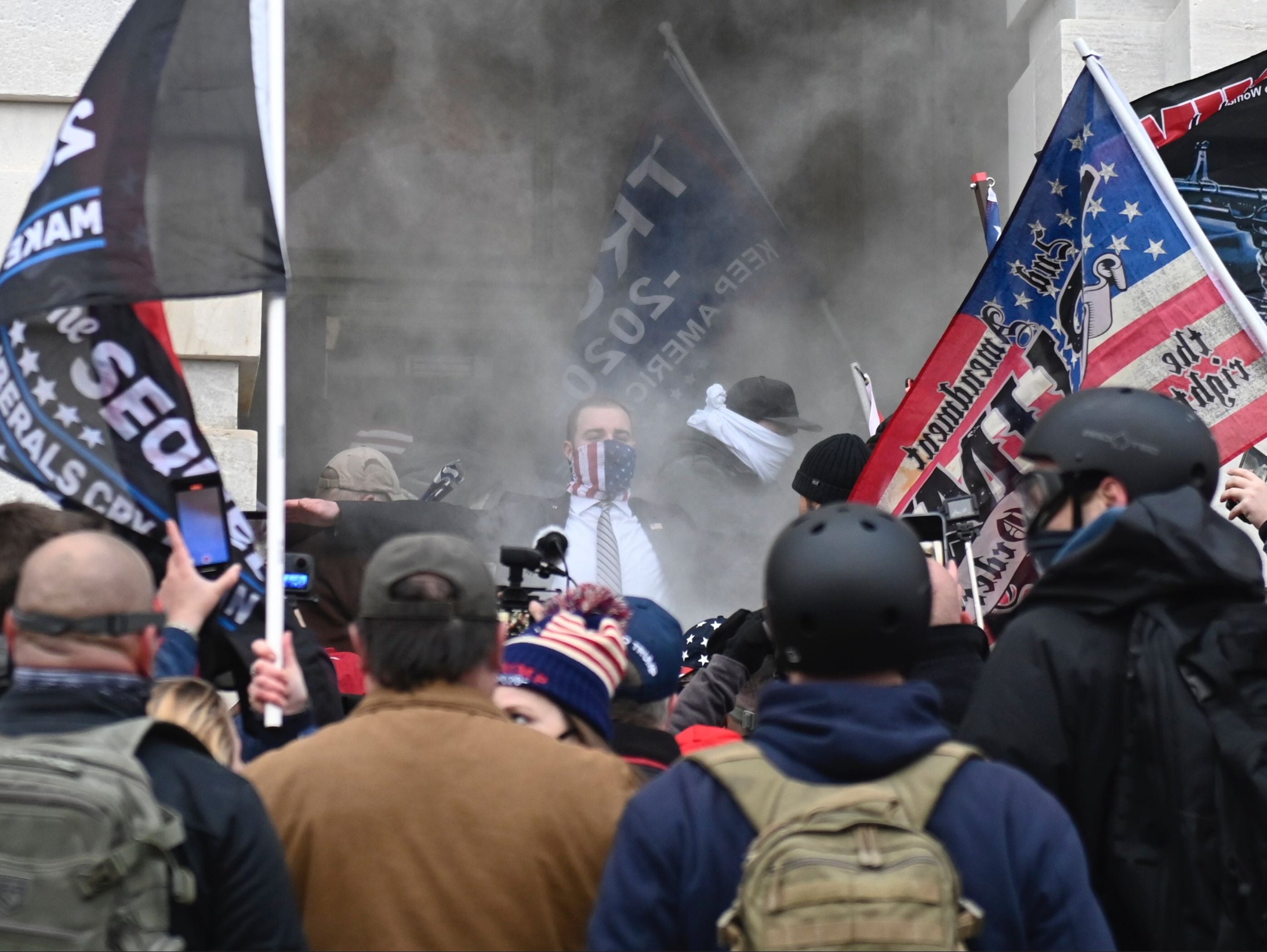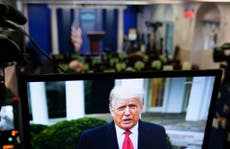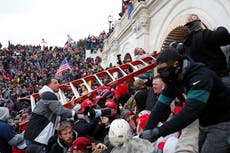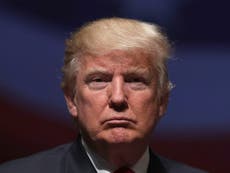If those who stormed the Capitol yesterday are charged with sedition, social networks should stand alongside them
What happens online has real-world implications – we need to consider this going forward


The violence and anger seen in Washington DC last night was all too real. But for years, discontent and conspiracies have festered online, with most people paying little attention. The reason is simple: too many of us think of the online world and the offline world as two distinct areas with very little overlap. We neglect to think of social media platforms as true public squares – and don’t acknowledge that what happens there has real-world implications.
That misplaced belief is worsened by lax enforcement from social media platforms, which seemingly prefer to prioritise making money over upholding public decency. Donald Trump is a Twitter construct, someone who repeatedly dallied with launching US presidential campaigns on previous occasions but decided not to because he knew he’d lose, and badly – until social media propelled him to some sort of relevancy.
And since taking power, he’s ruled by tweet, rather than legislation. It’s notable that – at the height of the chaos – he took to the platform to egg on his hordes of deplorables (that’s what, half a decade since the word was shunned, we should call them), rather than to TV. News networks were forced to screengrab his video from Twitter, rather than receiving it via satellite or traditional TV servers.
The Trump ecosystem of hangers-on and inciters have also benefitted from other platforms: YouTube gave birth to most of his favourite media personalities, and it continues to sustain mistruths. If those who stormed the Capitol yesterday are charged with sedition, social networks should stand alongside them – because without their viral power, the revolution would have fizzled out with a whimper.
In the late 1990s, right around the time Donald Trump was at the nadir of his fame, bankrupt and irrelevant, a 22-year-old neo-Nazi was planting bombs outside LGBTQ+ bars and pubs in Soho. When the police caught up with David Copeland, he had killed three and injured 140 people. In his bedroom were anti-Semitic books and pamphlets, and above his bedframe a Nazi flag. Copeland’s terror was limited, he spewed hate before the social media age. At the end of 2020, Anthony Quinn Warner tried to destroy a city block in Nashville, Tennessee, radicalised by social media into believing that 5G was trying to kill us all.
Warner was one of the latest in a long line of extremists, radicalised and lionised by a minority online. Those who took up Trump’s call to arms – hyped through social media – were too. And they won’t be the last.
Social platforms seem to have looked the other way, probably because they rely on engagement – and nothing drives more traffic than a crackpot dictator spewing out bilge through social media, stoking the fires of insurrection. The wilder the content, the more people want to watch, the more adverts they can serve against it, the more money they make. But as a protective fig leaf, they try and hide their justification behind an argument for free speech.
Several years ago, I spoke to one of the original employees of YouTube, there in the early days, who helped to codify the site’s rules. The platform struggled to figure out what to do with those holding unpalatable views who wanted to share them on the site. “These people with these views exist,” he told me. “They’re part of our society. They’ve been marginalised appropriately and swept under the rug appropriately, but there’s no use in pretending they don’t exist. We should know about them so people can confront them.”
The argument, they added, was that sunlight was the best disinfectant. But we know that sunlight helps organisms grow. To kill organisms off, you have to starve them of oxygen, and shut out the light. It has taken 15 or more years of social media turning the other way as they added fuel to the fire for them to act, and it could be too late. It took four people dying, and thousands traipsing through America’s seat of power, disrupting democracy, for Facebook, Twitter, Snapchat and YouTube to take notice, and to limit Trump’s reach or shut down his accounts – albeit temporarily.
Those who claim such action isn’t right make the argument that people will still hold those views, and they’ll simply slink off into the shadows, where they’re less well-policed. That’s true, but platforms like Parler and 4chan is where people choose to say the quiet parts of their beliefs a little louder.
And better yet, most people don’t know or care that these platforms exist. Give a crackpot a megaphone, and place him in the middle of a busy street, and he’s far more likely to be heard, and to convince people of his cause, than someone whispering in a side street.
Social media still has the power to do good: for one thing, the images of unrest within the Capitol building itself mostly came from social media. It allowed us to see the events of yesterday in their full, unvarnished horror, and the people behind them as the ugly face of hate that they are. For that, it’s useful. But those who hold those beliefs need to be more proactively policed, and pushed out of the mainstream and starved of a voice.





Join our commenting forum
Join thought-provoking conversations, follow other Independent readers and see their replies